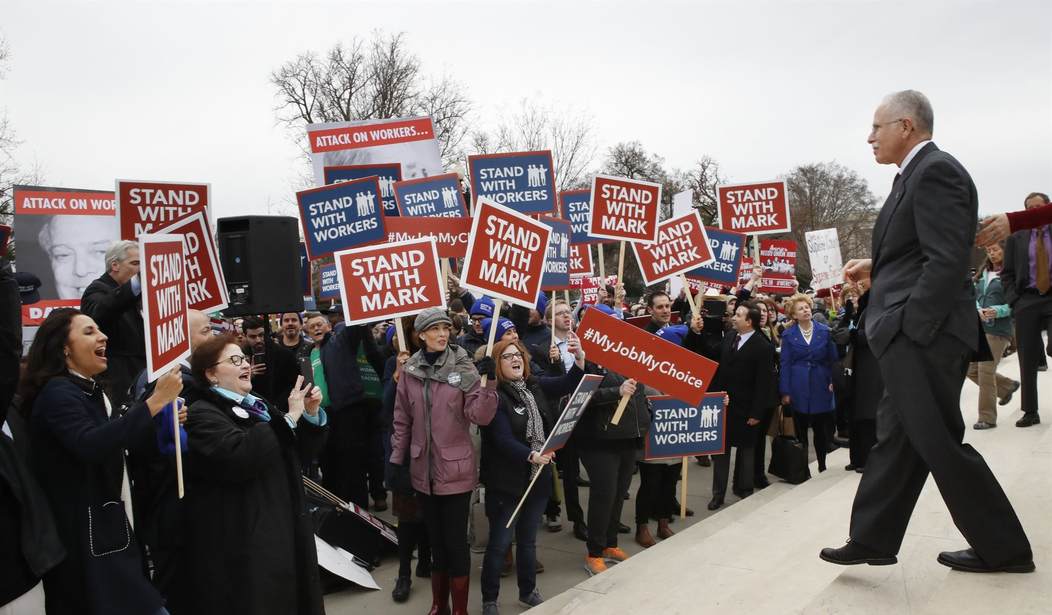The U.S. Supreme Court, in 2018, issued what was billed as a landmark decision in Janus v. AFSCME, affirming that government employees have a First Amendment right to keep their job even if they refuse to join a labor union or pay a representation fee to one.
But the court’s work will remain unfinished unless it agrees this week to hear — and rule in support of — the complainants in Belgau v. Inslee, a case that would recognize the broader scope the justices intended for Janus while also requiring that it be more effectively enforced.
Belgau concerns a group of Washington state employees whose attempts to opt out of their union in the wake of Janus were met with resistance. But unlike similar cases, its basis is language within the ruling that unions and lower courts seem determined to ignore.
Writing for the majority in Janus, Justice Samuel Alito emphasized:
“Neither an agency fee nor any other payment to the union may be deducted from a nonmember’s wages, nor may any other attempt be made to collect such a payment, unless the employee affirmatively consents to pay.”
In layman’s terms, this means a union cannot simply assume workers in a given bargaining unit want to be union members — and pay dues for the privilege. It must first ask permission.
But Alito went even further, noting:
“By agreeing to pay, nonmembers are waiving their First Amendment rights, and such a waiver cannot be presumed.”
Thus, before a union can even begin deducting dues from a worker’s paycheck, it must obtain the worker’s consent — and more. It must also be able to show he or she fully understands that by agreeing to pay dues they are waiving their right not to.
Agreements to authorize state dues deductions require informed consent. But the key is, that standard applies not just to nonmembers, but to all employees, including those who at some point joined a union as members but have now changed their minds.
Union membership isn’t marriage. The relationship isn’t presumed to be binding for life, and divorce certainly isn’t subject to arbitrary conditions set by one party.
Contrary to the caterwauling of unions now forced to actually compete for the dues money of their clientele rather than simply being handed an unchallengeable monopoly, the Supreme Court didn’t create a new right out of thin air in Janus. It affirmed rights under the First Amendment that always existed but had been violated for decades in states that lacked right-to-work protections.
The distinction could have potentially wide-ranging ramifications for government employee unions going forward.
In a very real sense, the burden of proof will have shifted. Groups like the Freedom Foundation, which have spent the years since Janus (and its logical antecedent from 2014, Harris v. Quinn) explaining to union members their opt-out rights and giving good reasons to stop paying dues, will shift from defense to offense.
Meanwhile unions — which for generations have been able to simply assume, and enforce, full compliance among a government agency’s workers — will now be forced to fight for every single member.
Just like every other private-sector service provider does in a free-market economy.
Whether because of timidity or allegiance to unions, judges at the trial court level have up to now been reluctant to embrace the full extent of what the justices were trying to say in Janus.
Belgau gives them a chance to say it one more time.
With feeling.
Aaron Withe is the Chief Executive Officer of the Freedom Foundation.













Join the conversation as a VIP Member